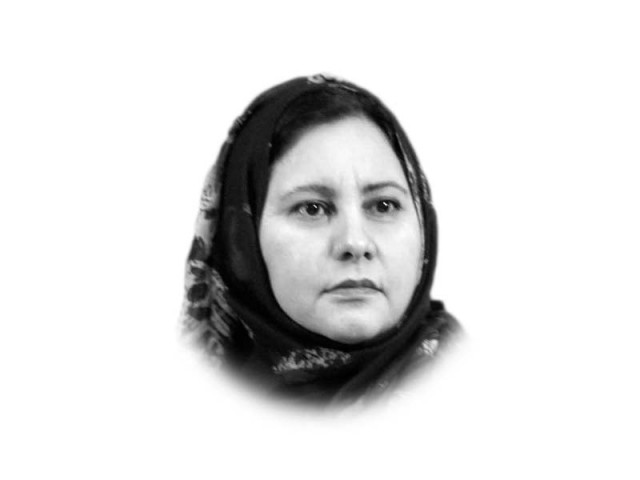Elections in Iraq—a nation in limbo
Iraq had its first parliamentary elections following the end of three-year long war against Islamic State

The writer is a geopolitical analyst. She also writes at globaltab.net and tweets @AneelaShahzad
Why this oblivion? Has the world suddenly lost all interest in Iraq?
Some 17 years past the US Invasion of Iraq, seven years past the symbolic withdrawal of the US, and a year since al Abadi announced victory over IS, one would want to ask if there is any return of democracy or peace in the country. Or has Iraq been made that ground of endless tribulations which perhaps humanity has eternally consecrated at the altar of sacrifice—where contenders can keep settling their scores, endlessly.
In 2016, J. Hagan and A. Hanson published a paper entitled ‘Militarisation of Mass Incapacitation and Torture During the Sunni Insurgency and American Occupation of Iraq’, wherein they explored how, with intensive policing and imprisonment, the American-led and Shia-dominated Iraq’s Ministries of Defence and Interior along with US forces performed the ethnic cleansing and displacement of Arab Sunnis from Baghdad’s neighbourhoods, and how there systematic detentions in military and militia-operated facilities, of which Abu Gharaib is just one, the US committed what the report calls a ‘joint criminal enterprise’. Not only did the US commit an unaccounted-for genocide against the Iraqi Sunnis but also made a Sunni-Shia divide in the previously harmonious society.
But this divide, which they had made to facilitate their rule, became exactly the reason for their failure in Iraq. As the US made a policy of conferring parliamentary powers to the Shias of Iraq, Iran got an inroad into the so-called rule in an Iraq continually inflicted with war. This was also the coming true of the fear, for which Saddam had waged a decade-long war with Iran, the fear that the Iranian Revolution would seep deep into Iraq.
Today, al Amiri’s Badr Party backed by Iran has secured the second highest number of seats while al Abadi’s Islamic Dawa Party backed by the US, is third in the polls. And it seems that both are not ready to give in to al Sadr, who is known to be a moderate — someone who is neither happy with US presence nor with the increasing interference of Iran in the country. Al Sadr’s previous meetings in Saudi Arabia and the UAE only remained a ray of hope that Iraqi Sunnis would eventually get the peace they deserve.
Instead of allowing Iraq to finally tread the entangled path of democracy and find its own destiny, the US decided at the July NATO summit in Brussels to increase its forces in Iraq along with Canadian and Australian commitments. This means that the US and Iran’s wrestle in the state will prolong indefinitely.
We know that the US-Iran confrontation is widely spread in the Middle East. They contest in Lebanon, in Syria and in Yemen. Iran has recently threatened the blockade of Bab al Mandan and the Strait of Hormuz, two vital oil routes. This threat is not very probable as it would mean all-out war but then again, the Iranians won’t be willing to compromise in Iraq, a battle they assume is already won.
Destroyed cities from Fallujah to Mosul, over two million displaced Iraqi refugees, disease and death, is the outcome of the war the country has remained embroiled in. Meanwhile, Iran and Turkey have constructed dams on the Tigris and Euphrates, already drying up the rivers by half and leaving Iraq’s agriculture parched. At the other end Exxon-Mobil, Shell, British Petroleum and others are taking away more than 2.7 million barrels per day out of Iraq, and from whatever they are paying for this oil, not a morsel reaches back to the mouths of the common Iraqi people.
So where will this indefinitely long war take this country, what about humanity, what about democracy, what about the right to self-determination, or free and fair governance! And when we are fighting all the time for the right to information, why does it not hurt us that a whole nation of millions of distressed, is blanked away from our information zone, and why has there been such little interest in the recount?
There is news, however, that protesters have been on the roads for the last three weeks in Baghdad, the centre of power and resources, and in a number of other cities, asking for jobs and an end to corruption. The authorities have reciprocated only by live ammunition, tear gas and water cannons, killing over a dozen since the protests began. Perhaps the $30 billion, which previous prime minister Haider al Abadi was promised at the ‘Kuwait International Conference for Reconstruction of Iraq’s Economy and Infrastructure’, in February 2018, are either stuck in the pipelines or have been spent on the luxuries of the previous ‘democratically’ chosen ones — because reconstruction can only begin when destruction has ended, when proxies have retreated, and when the people can start thinking and working for themselves.
And for the history students who still imagine the Great Mesopotamia as the cradle of civilisation, fraught not, for the cradle is safely tucked inside the lavish Green Zone of Baghdad, while all the lesser, not-needed ones can kill each other and be rid of their misery. And for those who made merry at the ouster of Saddam, the Green Zone is now filled with so many more now.
Published in The Express Tribune, September 4th, 2018.
Like Opinion & Editorial on Facebook, follow @ETOpEd on Twitter to receive all updates on all our daily pieces.















COMMENTS
Comments are moderated and generally will be posted if they are on-topic and not abusive.
For more information, please see our Comments FAQ